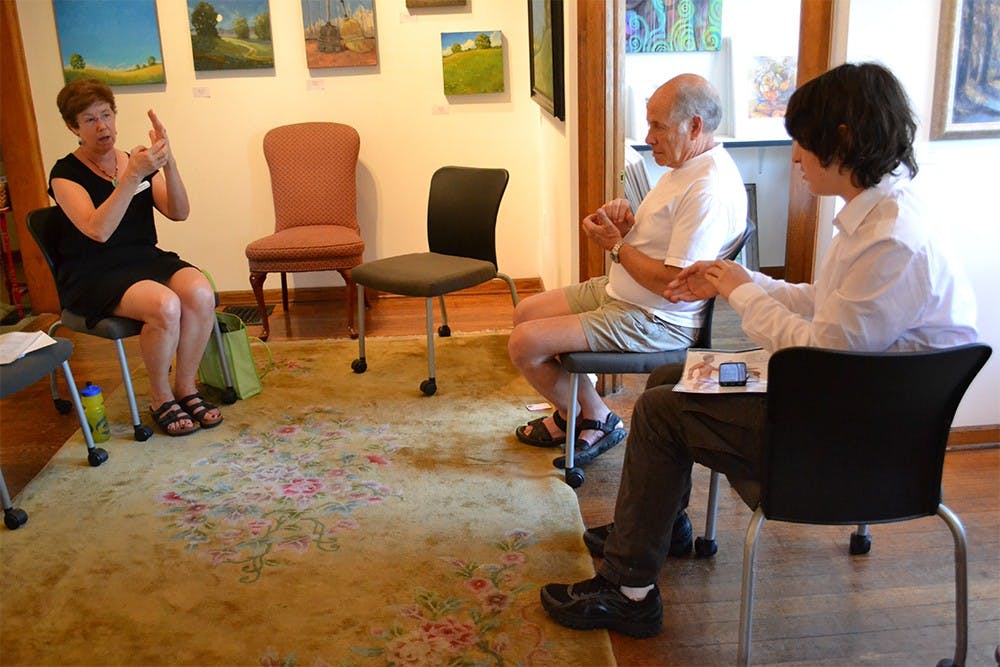Smith is practitioner of Emotional Freedom Technique, a process derived from acupressure, an Eastern medicinal technique that uses pinpoint tapping of the body to relieve stress and solve internal problems.
She also teaches EFT methods. She returned to the Venue Fine Arts & Crafts to teach again Tuesday.
“I’ve taught here a couple of times before,” Smith said. “I usually get anywhere from four to 20 people.”
At first, it seemed like Smith might have only two guests, since it was just her and two other men in the room, but that didn’t faze her. After a brief explanation of EFT’s origins in acupressure research, she delved right into the tapping and breathing that she’s been practicing for more than a decade.
“Take a deep breath and measure how shallow it is,” Smith said.
Across from her sat the Venue’s owner, David Colman, and Arthur Hertz, a freshman from the Academy of Science and Entrepreneurship.
As Colman and Hertz tapped, they began to move their fingers from the sides of the hands to their eyebrows, then the tops of their heads, and the sides of their bodies.
“Is this sort of clearing the system?” Hertz said.
Smith said that wasn’t exactly it.
“Tapping removes blocks,” Smith said. “Your body contains energy, and sometimes that energy gets blocked — like when a person says they will do something and then doesn’t do it.”
Hertz smiled.
“I have experience with that,” Hertz said.
Smith explained the energy would no longer be blocked after the tapping technique.
To avoid personal and emotional complications in her classes, Smith has participants think of something that annoys them.
When she began this part of Tuesday’s class, two women came in late. Smith asked them if they had an annoyance they wanted to relieve via tapping.
“The Democratic Senatorial Committee always calls me,” Sharon Wianshilbaum said. “That’s really annoying.”
Smith moved to Colman.
“My neighbors’ dogs bark at 5:30 in the morning,” Colman said.
After going around the room, Smith instructed her class to resume the tapping and repeat a mantra: “Even though I am annoyed, I deeply and completely accept myself.”
Once finished, Smith asked everyone to reevaluate what annoyed them. Colman said he was no longer annoyed with the dogs.
“This thought came to me during the process,” Colman said. “It’s nobody’s fault.”
Smith nodded and smiled.
“That’s what we call a cognitive shift,” Smith said.
Wianshilbaum said she was more stressed out.
“When the Democratic Senatorial Committee called, they asked for a donation,” Wianshilbaum said. “Then they charged my credit card more than they said they would, and they didn’t fix it.”
Smith said she didn’t see this as a fault of the technique.
“That’s how tapping kind of works to uncover what’s really wrong,” Smith said. “To identify your problem, it’s best to be as specific as possible.”
Smith only had an hour to teach her class the basics of tapping, but she said she offered workshops and personal training in her home for longer periods.
She encouraged anyone who was interested to look for a class that she will begin teaching at Ivy Tech Community College in September.
Smith said helping people solve their problems is something that she’d wanted to do for a long time.
“I went to California for grad school, and this is what I wanted to do when I was out there, but that was before I knew what (exactly) this was,” Smith said.






